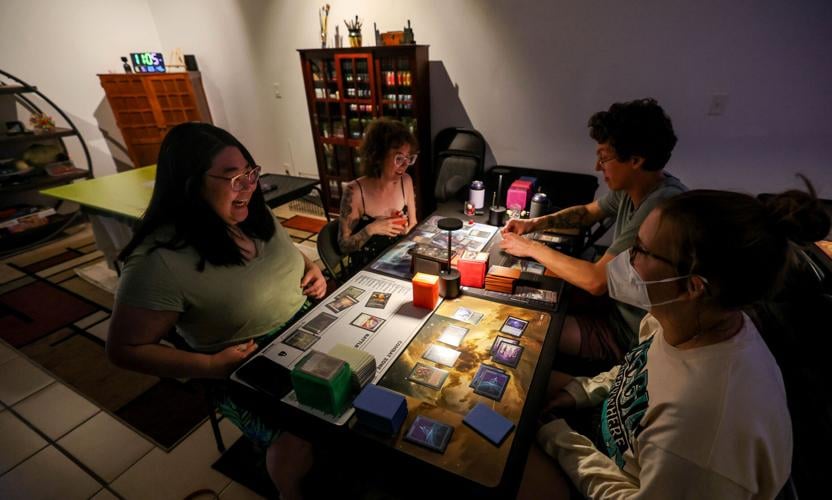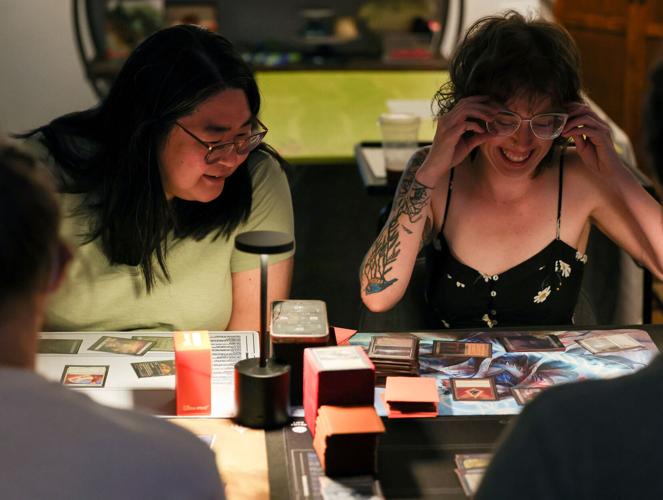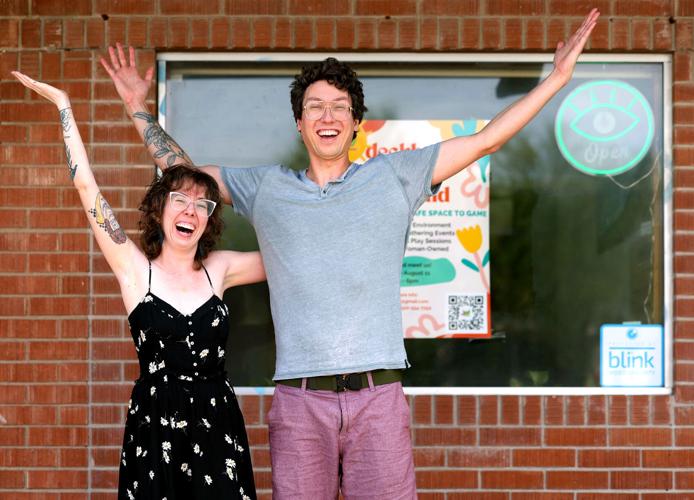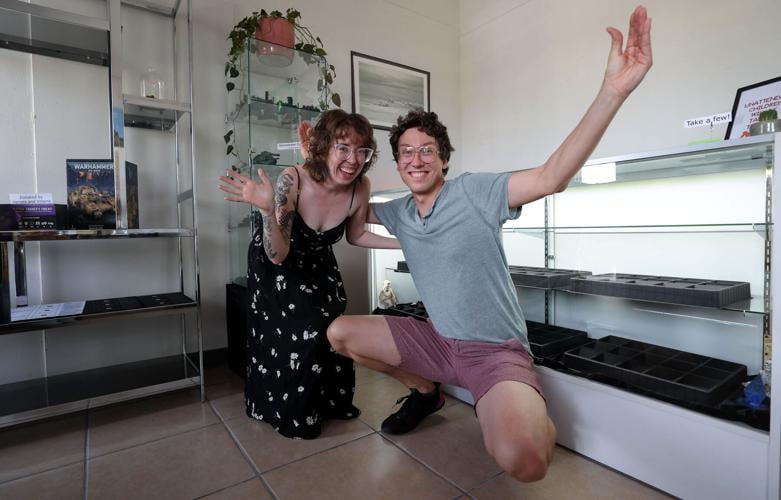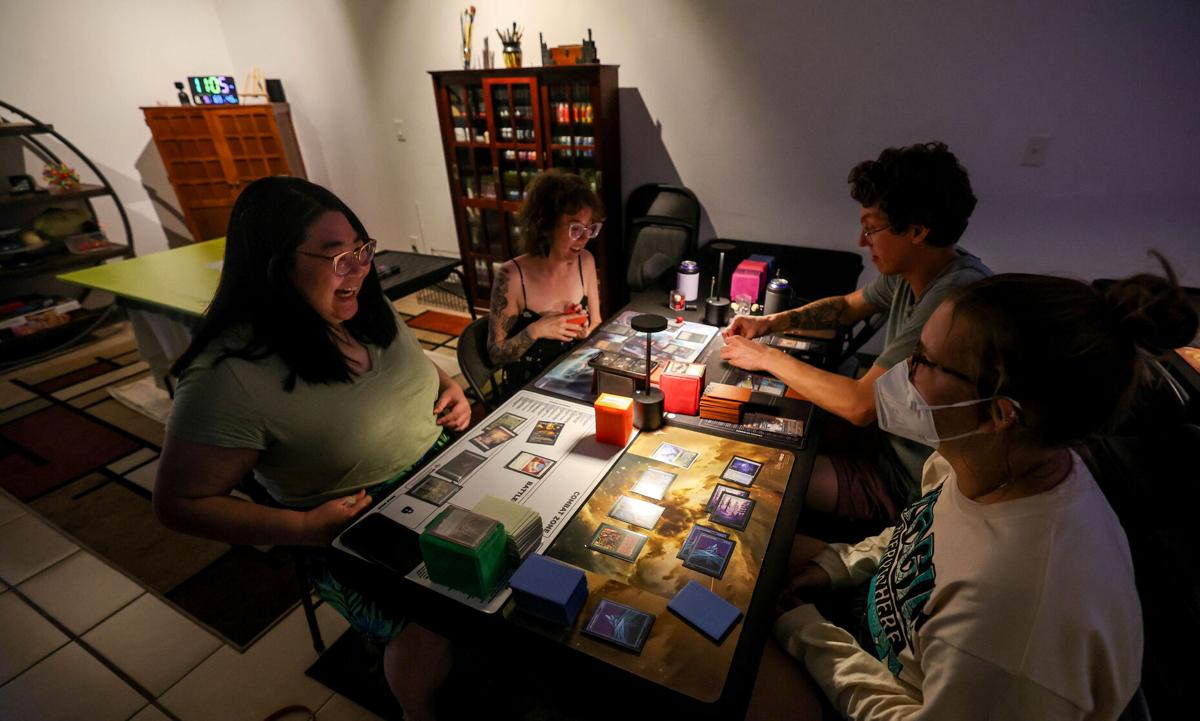For the first and last time in September, Samantha Maxwell and Daniel MacGregor decided to have a phone-free morning as they took a stroll to a nearby coffee shop.
As they walked through the neighborhood, MacGregor was hit by a car. The last thing he remembers is holding his wife’s hand.
Maxwell knocked on neighbors’ doors until eventually someone heard the yelling outside. After an ambulance arrived, Maxwell ran eight blocks to her parents’ house.
MacGregor woke up in the ambulance, sustaining a concussion and cognitive damage that he later recovered from. He walked with a cane for two months. The driver of the car was never found.
While Maxwell was caring for her husband, she contracted a kidney infection and lost 20 pounds in a single month.
At a young age, Maxwell was diagnosed with obsessive compulsive disorder. MacGregor was diagnosed with bipolar disorder. Through the many doctor and psychiatry appointments during a traumatic few months in 2023, Maxwell and MacGregor learned that neither of them actually had OCD or bipolar — they are autistic, and the psychiatric medications they had been taking for years were actually making their symptoms worse.
“We were kind of at a crossroads of — wow, a lot of crazy things have happened in our lives, some life-threatening, and we were like, ‘What do we want to do that will make life worth living?’” Maxwell says.
“It made us think, ‘Are we living our lives to the fullest every day, authentically?’” MacGregor says.

Deckbox owners Samantha Maxwell and Daniel MacGregor pose outside of their storefront during their grand opening.
The couple officially opened Deckbox on Friday, Aug. 9 at 1672 N. Country Club Road, a gaming space specifically designed for people with all neurodiversities. It’s sensory-safe — there are no fluorescent lights hanging from the ceiling and no fragrances pumping out of the vents. There are tabletop lamps that can be changed based on your preference of warmth and brightness. The tables are cushioned, as are the chairs.
Maxwell and MacGregor also have blankets, ear buds and fidget toys available for anyone who may need them. There’s a limited number of seats to eliminate the possibility of overcrowding and overstimulation.
Deckbox is an intergenerational space mostly focusing on Magic: The Gathering, a mystical-themed strategic card game. Eventually, the storytelling-focused role-playing game Dungeons & Dragons will be added to the mix, one day with a campaign that’s Tucson-themed. Paint nights are also part of the fun — both on canvas and atop build-your-own miniatures. There are time slots for kids ages 8 and up, along with events that are tailored for adults only.
“We’re creating an extension of our living room and inviting Tucson to do it with us,” Maxwell says.

Michelle Vonie, left, watches Samantha Maxwell as she pulls her card while playing Magic: The Gathering at Deckbox on Aug. 9.
The couple plans to host after-school programs and themed nights, such as Spanish Magic Night, Low Sensory Night and evenings specifically for couples. Thursdays at 5 p.m. are for novices — a word that Maxwell doesn’t mean negatively one bit. Prices range from $10-$25 for events and drop-in sessions.
Workshops are also in the works — topics include how to lose gracefully, autism awareness and deck-building.
For a full list of events and hours, visit Deckbox's website. Deckbox is also open 9-11 a.m. Monday, Tuesday, Thursday and Friday for “office hours,” when you can get personalized advice and gaming tips.
Before becoming sick and getting injured, the couple played Magic: The Gathering at different stores. When they began to heal and returned to those same spaces, MacGregor called the experience “jarring.”
“After getting used to the sensory experience we were used to (while playing at home), the lights and the sound — Samantha would say, after 30 minutes, we gotta go,” he recalls. “That’s when we realized there wasn’t a space for us in Tucson.”
“Daniel and I want to elevate the sense of community around gaming. There are a lot of unhelpful and unkind behaviors in the world of gaming — all it takes is one person one time feeling unwelcome,” Maxwell says. “I think (it’s about) having a safe space, open armed, that lets people know you can take as much time as you need to do your turn. You don’t need to mask here.”
“Identity is a big part of gaming,” MacGregor says. “We want to let them feel like their voices matter, that their choices in their deck-building matter.”

Deckbox, 1672 N. Country Club Road, pictured on Aug. 9, 2024.
Maxwell recalls a time when she showed up to a store to play Magic: The Gathering and the other gamer was so aggressive that she decided to leave. Deckbox isn’t meant to be an ultra competitive space, and you certainly don’t have to follow the traditional norms in your strategies.
“It’s really — come here, put your bags here, let’s play, let’s have a good time,” Maxwell says. “I hope they feel heard and seen as a person, not a customer. Even designing a Magic deck takes so much time and effort. I think everyone should feel really good about what they bring to the table.”
“It’s not about being the best,” she says. “It’s about being you.”
Maxwell has a 12-year background in educational technology, English and teaching. She went to college in both Hawaii and Tucson and wrote one of her thesis projects on how to learn language through the game Overwatch. She moved to Tucson in 2010.
MacGregor grew up in the Bay Area and moved to Tucson in 2003 when he was 15. He has a degree in history from the University of Arizona and is a master storyteller with the goal of enchanting the imagination of everyone who steps into Deckbox.

Deckbox owners Samantha Maxwell and Daniel MacGregor pose in an area that will soon be a small retail space.
Both are lifelong gamers. Maxwell moved around a lot while growing up and didn’t have long-term in-person friendships, so she turned to the digital world for gaming.
MacGregor, on the other hand, grew up with grandparents who were big on playing card games. His grandma would constantly get inventive, creating games out of the smallest of items, like a bean and a pot. He was 8 years old when he discovered Magic: The Gathering, and 11 when he found Dungeons & Dragons.
“Games are important to us. Play is important to us,” MacGregor says. “We want to share that with our fellow Tucsonans.”
“As part of our transition from children to adults, we (as a society) strip play out,” Maxwell says. “We reject that. We unapologetically reject that.”
Some of the world's top athletes from the Olympics and Paralympics have shared their favorite warmup tracks, revealing what gets them pumped before a crucial game, meet or match. The results range from The O'Jays to the Red Hot Chili Peppers to Drake, spanning genres and eras — all of which can be found on our Spotify playlist. (July 24)


